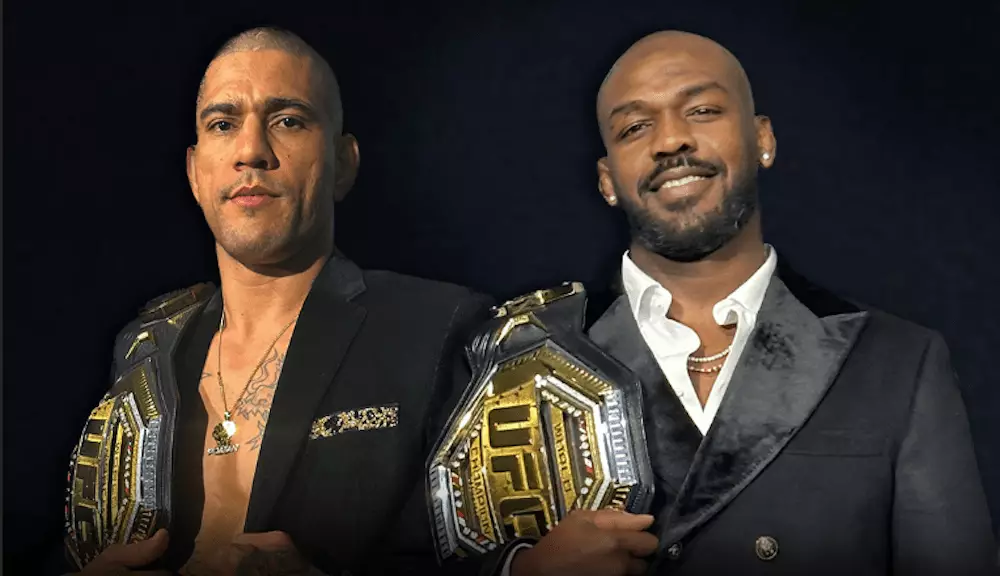The world of mixed martial arts is no stranger to dramatic twists and turns, particularly when it comes to fight bookings and champion disputes. Recently, UFC CEO Dana White made headlines with his evolving stance on the potential matchup between Jon Jones and Alex Pereira. Both fighters find themselves in a unique narrative surrounding the heavyweight title and the prospect of title unification — a saga punctuated by comments, obligations, and a hint of personal rivalry.
Jon Jones, once hailed as one of the greatest mixed martial artists in history, prepares to defend his heavyweight title against Stipe Miocic in what is anticipated to be a monumental showdown at UFC 309. With an impressive record of 27 wins to a single loss, the stakes are high. However, what has captured the spotlight isn’t just his impending match but rather his controversial statements regarding his future in the sport. Jones expressed a desire to fight Alex Pereira, the reigning light heavyweight champion, declaiming that such a match might be the sole reason for him to continue his career, dismissing the idea of unifying belts with the interim champion, Tom Aspinall.
Dana White’s reaction to Jones’ comments indicates a complex dilemma. His initial rejection of a Jones vs. Pereira fight was grounded in the necessity of recognizing the interim heavyweight champion. Aspinall, with a record of 15-3, rightfully occupies a significant position in the heavyweight division. White emphasized that Jones has already earned significant opportunities throughout his career, asserting that it is now his “obligation” to grant the younger fighters, like Aspinall, their chances. The notion of a potential title fight between two champions — one being the incumbent and the other an interim title holder — adds layers of complexity to the UFC’s matchmaking process.
Compounding the situation is Jones’ openly hostile sentiment towards Aspinall, whom he referred to as “an asshole.” This personal animosity raises questions about whether egos and grudges might interfere with the competitive spirit that UFC instills in its matchups. Fighters, especially at Jones’ level, ideally engage in bouts that further their careers and legacies rather than personal disputes. However, it appears that Jones’ emotional predisposition might cloud his business judgment, potentially sidelining an important fight opportunity.
The UFC is undoubtedly at a crossroads with Jon Jones’ future. With significant expectations for his upcoming fight and the backdrop of both personal and professional dynamics at play, fans are left wondering whether Jones will indeed face Aspinall or pursue a possibly more lucrative, yet contentious, bout with Pereira. The emphasis on unifying titles maintains the integrity of the sport, while also honoring the opportunities of rising stars. Ultimately, as the dust settles post-UFC 309, the direction Jones chooses could have lasting implications on his legacy and the future of the heavyweight division.

